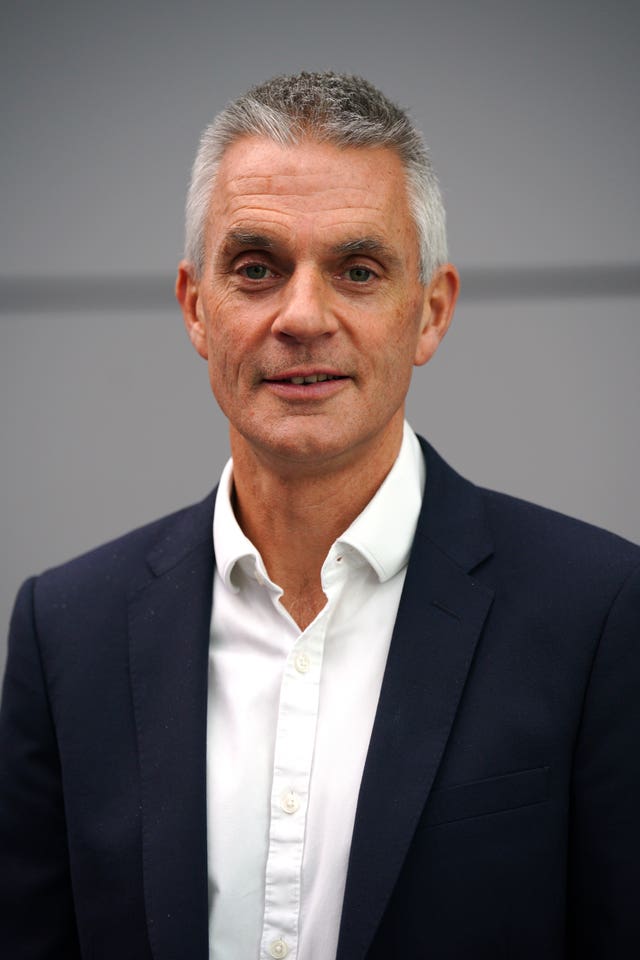
A former director general of the BBC has defended the corporation’s reporting, saying that the broadcaster “always gets attacked” when covering conflict.
The BBC has been criticised by senior Conservative MPs and the Israeli president over its coverage of the conflict in Israel and Gaza.
Greg Dyke told Sky News programme Sunday Morning With Trevor Phillips: “At times of crisis, the BBC always gets attacked by both sides, always, go back to Falklands.
“I seem to remember back in the Falklands (war), (Prime Minister) Mrs. (Margaret) Thatcher attacked the BBC for not saying… ‘our boys’ as opposed to British troops.
“I think (the message) for the BBC (is)… ‘Don’t lose your nerve, keep trying.”
"At times of crisis the BBC always gets attacked."
Former BBC Director-General Greg Dyke adds "The BBC will make every effort in the world not to be seen to be biased." #TrevorPhillips https://t.co/fhIHlpTGAF
📺 Sky 501, Virgin 602, Freeview 233 and YouTube pic.twitter.com/sKp0JC5wUO
— Sky News (@SkyNews) October 22, 2023
The BBC director-general between 2000 and 2004 added that Israel ambassador’s complaints to the corporation “outnumbered everyone else” during his time.
“Israelis have always complained,” Mr Dyke added.
He also said he had not spoken to the current director general at the BBC Tim Davie to offer advice and reporting decisions are “largely in the hands of a journalist” and BBC News.
On Friday, Mr Davie met the Board of Deputies of British Jews president Marie van der Zyl and its chief executive Michael Wegier to discuss their “outrage” at Hamas being described as militants instead of terrorists.
The Jewish group said the BBC had confirmed it is no longer the corporation’s practice to call Hamas militants, but instead is describing the group as a proscribed terrorist organisation by the UK Government and others, or simply as Hamas.
A BBC spokesperson said: “For some days we had not been using ‘militant’ as a default description for Hamas, as we have been finding this a less accurate description for our audiences as the situation evolves.”
This follows Israel’s president Isaac Herzog telling the UK Prime Minister Rishi Sunak on Thursday that the way the BBC “characterises Hamas is a distortion of the facts” and there should be a “correction” issued by the broadcaster.
Earlier in the week, the corporation said an on-air correspondent had been “wrong to speculate” in the immediate aftermath of the bombing of a hospital in Gaza City.

The BBC also said the “correspondent was giving instant analysis on the ground from Jerusalem in what was a confusing and difficult story” and “did not at any point report that it was an Israeli strike”.
Hamas has blamed an Israeli air strike for the attack on Tuesday, while the Israeli military said al Ahli hospital was instead hit by a rocket misfired by Palestinian militants.
Mr Dyke also told the Sky News programme: “You’d be looking all the time for ‘did we make a mistake? Can we make that clear?’
“And mistakes will get made, there’s no doubt about it, in a story that is moving at an incredible rate.”
The former chairman of the Football Association (FA) also criticised the Wembley arch not being lit-up following Hamas attacking Israel.
He said: “I thought the FA made a mistake.
“I think they should have just lit up the arch, not because they were supporting or not supporting Israel, but they should have come out in support of the people who had suffered those terrible atrocities.”
Mr Dyke also said in the past, what he called “other acts of terrorism”, saw the arch illuminated.
On Thursday, FA chief executive Mark Bullingham accepted the “hurt” caused to the Jewish community by the FA’s decision not to light the arch in the colours of the Israeli flag.
“This week has made us question whether we should light the arch and when, and we’ll be reviewing that in the coming weeks,” Mr Bullingham also said at the Leaders Week conference at Twickenham.
Culture Secretary Lucy Frazer has express concern about the BBC’s decision not to call Hamas terrorists, without attribution, and criticised the FA for not lighting the arch.


Why are you making commenting on The National only available to subscribers?
We know there are thousands of National readers who want to debate, argue and go back and forth in the comments section of our stories. We’ve got the most informed readers in Scotland, asking each other the big questions about the future of our country.
Unfortunately, though, these important debates are being spoiled by a vocal minority of trolls who aren’t really interested in the issues, try to derail the conversations, register under fake names, and post vile abuse.
So that’s why we’ve decided to make the ability to comment only available to our paying subscribers. That way, all the trolls who post abuse on our website will have to pay if they want to join the debate – and risk a permanent ban from the account that they subscribe with.
The conversation will go back to what it should be about – people who care passionately about the issues, but disagree constructively on what we should do about them. Let’s get that debate started!
Callum Baird, Editor of The National
Comments: Our rules
We want our comments to be a lively and valuable part of our community - a place where readers can debate and engage with the most important local issues. The ability to comment on our stories is a privilege, not a right, however, and that privilege may be withdrawn if it is abused or misused.
Please report any comments that break our rules.
Read the rules hereLast Updated:
Report this comment Cancel